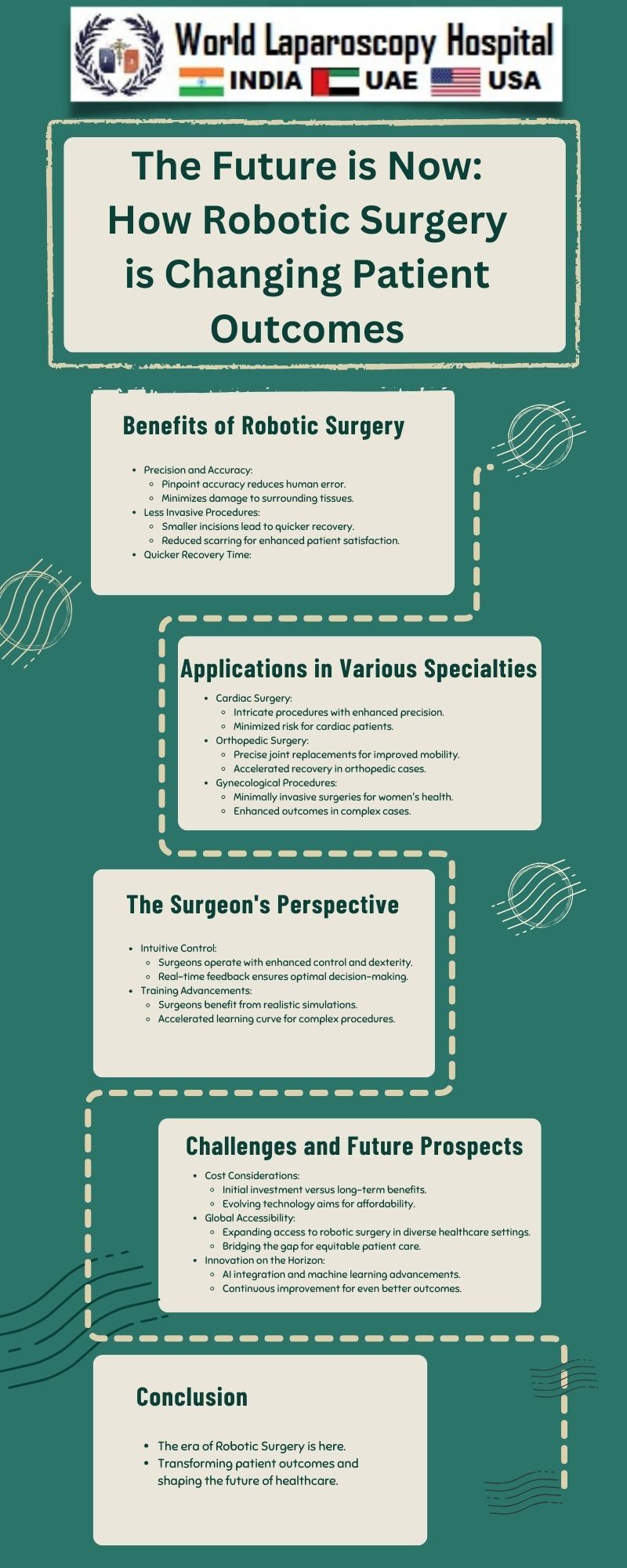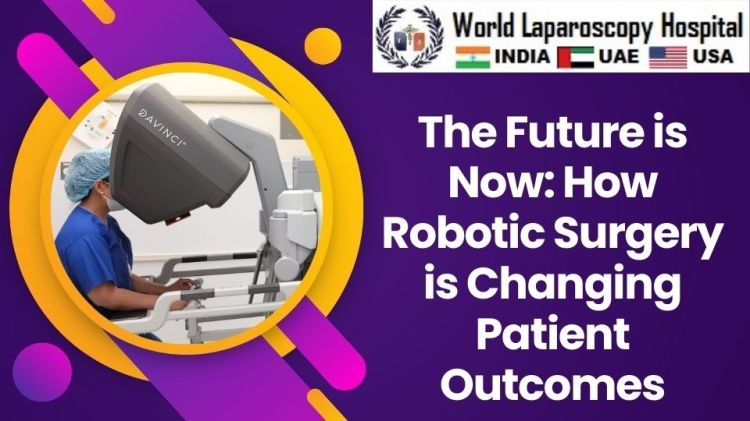The Future is Now: How Robotic Surgery is Changing Patient Outcomes
Introduction:
In the rapidly evolving landscape of modern medicine, one of the most revolutionary advancements is the integration of robotic surgery. This transformative approach to medical interventions is reshaping the way surgeries are performed, offering a paradigm shift in patient outcomes. As we delve into the intricacies of robotic surgery, we uncover the multifaceted aspects that contribute to its growing significance in the medical field.

The Genesis of Robotic Surgery:
To understand the present and future implications of robotic surgery, it is essential to trace its roots. The concept of using robots in surgery dates back to the early 1980s, with the inception of robotic-assisted systems. However, it was in the 21st century that the technology truly came into its own, thanks to breakthroughs in robotic design, computer processing power, and telecommunication.
The Mechanics Behind Robotic Surgery:
At its core, robotic surgery involves the use of robotic systems to assist surgeons in performing intricate procedures with heightened precision. These systems typically consist of a console where the surgeon sits, controlling robotic arms equipped with surgical instruments. The surgeon's movements are translated into precise actions by the robotic arms, allowing for minimally invasive surgeries.
Minimally Invasive Advantages:
One of the key contributions of robotic surgery is its ability to facilitate minimally invasive procedures. Unlike traditional open surgeries that require large incisions, robotic surgery allows for smaller, more precise incisions. This minimizes trauma to surrounding tissues, leading to reduced blood loss, faster recovery times, and decreased postoperative pain for patients.
Enhanced Precision and Control:
Robotic surgery provides surgeons with an unprecedented level of precision and control. The robotic arms can mimic the surgeon's hand movements with greater dexterity, filtering out tremors and allowing for meticulous maneuvers. This level of control is particularly crucial in delicate procedures, such as cardiac or neurosurgery, where precision can significantly impact patient outcomes.
3D Visualization and Magnification:
A pivotal aspect of robotic surgery is the incorporation of three-dimensional visualization systems. Surgeons are afforded a high-definition, magnified view of the surgical site, surpassing the capabilities of traditional laparoscopic methods. This enhanced visual feedback enables surgeons to identify anatomical structures more clearly, reducing the risk of errors and enhancing overall surgical accuracy.
Telemedicine and Remote Surgery:
The integration of telecommunication technologies has expanded the reach of robotic surgery beyond geographical boundaries. Surgeons can now perform remote surgeries using robotic systems, bridging the gap between patients and specialized medical expertise. This is particularly beneficial for patients in underserved or remote areas who may not have easy access to specialized surgical care.
Training and Skill Development:
As robotic surgery gains prominence, training programs are evolving to equip surgeons with the necessary skills. Simulators and virtual reality platforms allow surgeons to practice and refine their techniques in a controlled environment before performing actual procedures. This not only enhances the proficiency of surgeons but also contributes to the safe adoption and widespread acceptance of robotic surgery.
Applications Across Specialties:
The versatility of robotic surgery extends across various medical specialties. From urology and gynecology to orthopedics and thoracic surgery, robotic systems are being increasingly utilized for a diverse range of procedures. Each specialty benefits from the unique advantages of robotic technology, leading to improved patient outcomes and expanded treatment options.
Real-world Success Stories:
Examining real-world cases underscores the positive impact of robotic surgery on patient outcomes. Success stories abound, showcasing instances where robotic procedures have led to quicker recoveries, reduced complications, and improved quality of life for patients. Whether it's a complex cardiac intervention or a routine gynecological surgery, the testimonials of patients and surgeons alike underscore the transformative power of robotic technology.
Challenges and Considerations:
While the potential benefits of robotic surgery are evident, it is essential to acknowledge the challenges and considerations associated with its widespread adoption. Cost implications, the learning curve for surgeons, and concerns about the over-reliance on technology are subjects that warrant careful examination. Additionally, ongoing research is crucial to continually refine and enhance the safety and efficacy of robotic surgical systems.
The Future Horizon:
As technology advances and research progresses, the future of robotic surgery appears promising. Innovations such as haptic feedback systems, artificial intelligence integration, and further miniaturization of robotic instruments hold the potential to elevate robotic surgery to new heights. The continuous collaboration between engineers, healthcare professionals, and researchers will undoubtedly drive the evolution of robotic surgery in the years to come.
Conclusion:
In the grand tapestry of medical progress, robotic surgery emerges as a pivotal thread, weaving together innovation, precision, and improved patient outcomes. From its early conceptualization to its current state of advanced integration, robotic surgery stands as a testament to human ingenuity and the relentless pursuit of enhancing healthcare. As we stand on the cusp of the future, the impact of robotic surgery on patient outcomes is not just a promise but a tangible reality, shaping the trajectory of modern medicine.



